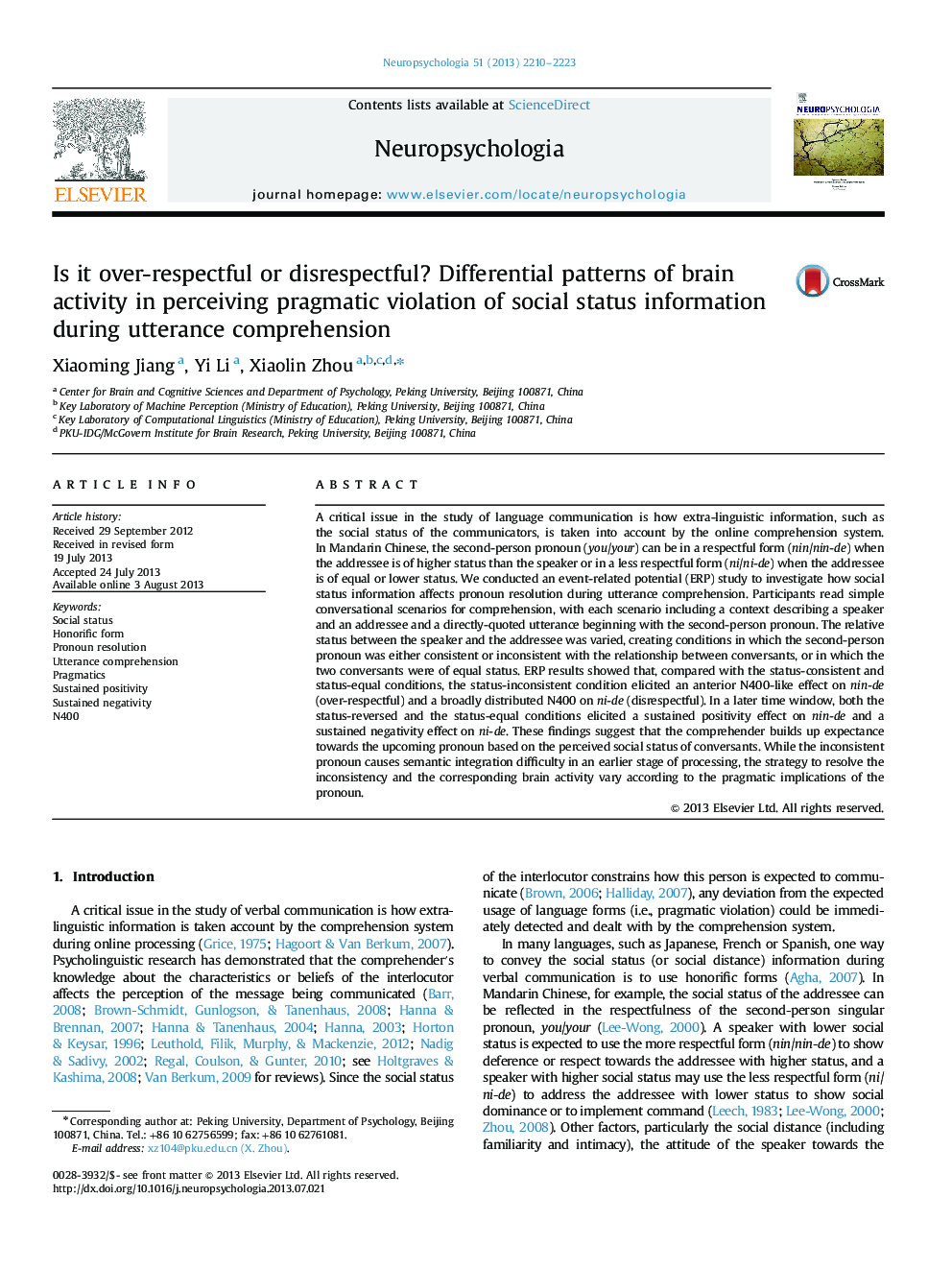| کد مقاله | کد نشریه | سال انتشار | مقاله انگلیسی | نسخه تمام متن |
|---|---|---|---|---|
| 10464815 | 925705 | 2013 | 14 صفحه PDF | دانلود رایگان |
عنوان انگلیسی مقاله ISI
Is it over-respectful or disrespectful? Differential patterns of brain activity in perceiving pragmatic violation of social status information during utterance comprehension
ترجمه فارسی عنوان
آیا بیش از حد احترام یا بی احترامی است؟ الگوهای دیفرانسیل فعالیت مغز در شناخت نقایص عملگرا از اطلاعات وضعیت اجتماعی در هنگام تفسیر سخنرانی
دانلود مقاله + سفارش ترجمه
دانلود مقاله ISI انگلیسی
رایگان برای ایرانیان
کلمات کلیدی
موضوعات مرتبط
علوم زیستی و بیوفناوری
علم عصب شناسی
علوم اعصاب رفتاری
چکیده انگلیسی
A critical issue in the study of language communication is how extra-linguistic information, such as the social status of the communicators, is taken into account by the online comprehension system. In Mandarin Chinese, the second-person pronoun (you/your) can be in a respectful form (nin/nin-de) when the addressee is of higher status than the speaker or in a less respectful form (ni/ni-de) when the addressee is of equal or lower status. We conducted an event-related potential (ERP) study to investigate how social status information affects pronoun resolution during utterance comprehension. Participants read simple conversational scenarios for comprehension, with each scenario including a context describing a speaker and an addressee and a directly-quoted utterance beginning with the second-person pronoun. The relative status between the speaker and the addressee was varied, creating conditions in which the second-person pronoun was either consistent or inconsistent with the relationship between conversants, or in which the two conversants were of equal status. ERP results showed that, compared with the status-consistent and status-equal conditions, the status-inconsistent condition elicited an anterior N400-like effect on nin-de (over-respectful) and a broadly distributed N400 on ni-de (disrespectful). In a later time window, both the status-reversed and the status-equal conditions elicited a sustained positivity effect on nin-de and a sustained negativity effect on ni-de. These findings suggest that the comprehender builds up expectance towards the upcoming pronoun based on the perceived social status of conversants. While the inconsistent pronoun causes semantic integration difficulty in an earlier stage of processing, the strategy to resolve the inconsistency and the corresponding brain activity vary according to the pragmatic implications of the pronoun.
ناشر
Database: Elsevier - ScienceDirect (ساینس دایرکت)
Journal: Neuropsychologia - Volume 51, Issue 11, September 2013, Pages 2210-2223
Journal: Neuropsychologia - Volume 51, Issue 11, September 2013, Pages 2210-2223
نویسندگان
Xiaoming Jiang, Yi Li, Xiaolin Zhou,
